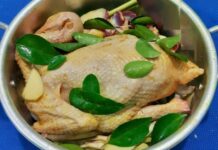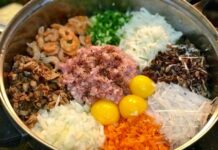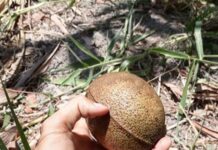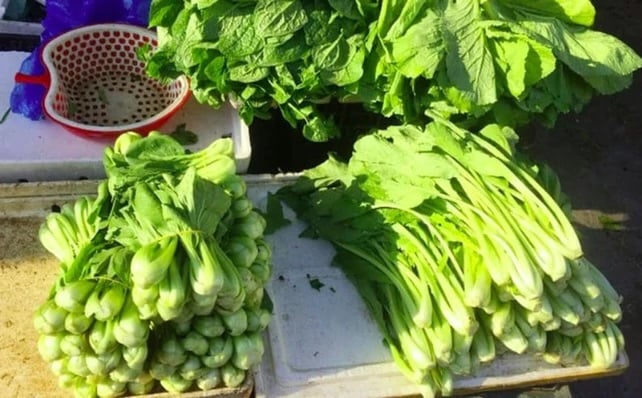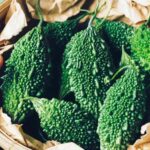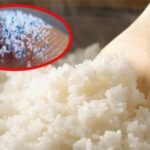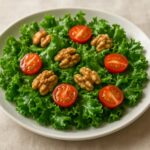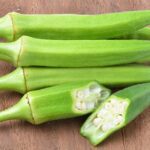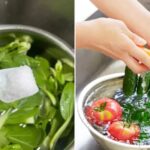The Concerning Reality of Pesticide Residues in Fruits and Vegetables
The excessive use of pesticides in agriculture has become a pressing issue in recent years. According to data from the Ministry of Agriculture and Rural Development, 30-40% of sampled fruits and vegetables were found to contain chemical residues exceeding the permitted levels. This has raised concerns among families as daily meals could potentially become a “double-edged sword” for their health.
Pesticides and growth stimulants, if not used properly or if the pre-harvest waiting period is not adhered to, will leave large amounts of toxic chemicals on the food. Dr. Nguyen Thi Lam, Deputy Director of the National Institute of Nutrition, shared on VnExpress: “Long-term consumption of pesticide-contaminated vegetables can cause acute poisoning, immune system disorders, and even the risk of cancer.”
Therefore, it is crucial to be aware of the types of vegetables that are prone to pesticide contamination and to practice safe handling and preparation methods.
The 5 Types of Vegetables Most Prone to Pesticide Contamination – Be Cautious When Purchasing!
Mustard Greens (Bok Choy, Chinese Kale, Spoon Mustard)
Mustard greens are a type of leafy green vegetable commonly used in Vietnamese cuisine. However, due to their short growth period (only about 20-30 days), these vegetables are often sprayed with pesticides continuously to ensure high yields.
Tip for selection: Opt for mustard greens with young leaves that are not overly glossy or abnormally green. If the leaves look too perfect, they have likely been treated with excessive growth stimulants.
Preparation method: Rinse thoroughly under running water, then soak in a dilute salt solution for about 15 minutes to reduce chemical residues.

Water Spinach
Water spinach is easy to cultivate, inexpensive, and widely consumed. However, according to PGS.TS Tran Hong Con (Hanoi University of Science) in the Labor Newspaper, water spinach is often sprayed with growth stimulants to make the stems thicker and the leaves a darker shade of green.
Tip for identification: Avoid bunches with abnormally thick and stiff stems or unusually dark green leaves. Moreover, it is not recommended to consume this vegetable raw (in dishes like salads) due to the high risk of chemical contamination.
Note: Soak water spinach in rice washing water or dilute salt solution for at least 10 minutes before cooking.

Lettuce and Other Raw Vegetables (Fish Mint, Perilla, Basil)
Lettuce and raw vegetables are typically consumed without heat treatment, increasing the risk of chemical contamination compared to other types of vegetables.
Tip for selection: Choose bunches with natural colors, avoiding those that appear too yellow or overly glossy. Also, refrain from purchasing vegetables with a strong or unusual odor.
Preparation method: Soak the vegetables in a dilute salt solution or ozone solution for about 20 minutes, then rinse thoroughly with clean water before consumption.
Yardlong Beans and Snap Beans
Yardlong beans and snap beans are frequently sprayed with pesticides to prevent pest damage before harvesting.
Identification tip: Avoid beans that are overly glossy or flawless. Beans with a few minor pest bites are generally safer.
Suggestion: Soak the beans in a dilute salt solution for about 15 minutes, then boil thoroughly before cooking.

Cassia Leaves
Cassia leaves, though mild in nature, have thick leaves that easily retain pesticides. This is why they deserve special attention.
Tip for selection: Opt for cassia leaves that are uneven in color, slightly rough, or show minor signs of pest damage. Bunches that look too perfect are likely to be treated with chemicals.
Preparation method: Crush the leaves before rinsing to remove dirt and chemicals, then cook thoroughly.
General Guidelines for Selecting and Preparing Safe Vegetables
To protect your family’s health, keep in mind the following principles:
- Prioritize vegetables with clear origins: Opt for organic or VietGAP-certified vegetables or purchase from reputable stores.
- Proper handling: Soaking vegetables in dilute salt solution, rice washing water, or ozone solution can reduce chemical residues by up to 90%.
- Look beyond appearances: “Pretty” vegetables are not always safe. Choose vegetables with natural appearances over those that look too perfect.
Conclusion: Health Protection Starts with Small Habits
We all strive to prepare delicious and nutritious meals for our families. However, let’s not forget that health is the top priority. Understanding which vegetables are prone to pesticide contamination and how to handle them safely will boost our confidence in selecting and preparing food.
Remember, truly “fresh” vegetables may not always look “pretty.” By applying these simple tips, we can protect ourselves and our loved ones from the potential risks associated with unsafe food. Let’s embrace a healthier and happier life by starting with small changes in our shopping and vegetable preparation habits!












